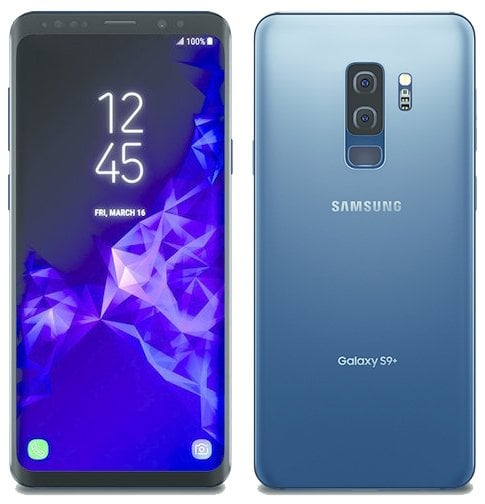The latest news on the Galaxy S9 camera suggests that the photographic capabilities of the Samsung flagship will be particularly impressive. The Korean manufacturer is currently making the final preparations for the revelation of both the Galaxy S9 and S9 Plus at an event on February 25, but already much of this information has seeped out.
Ahead of this event, the Galaxy S9 camera was already presumed to be a major focus of the new device, with its super slow-motion capabilities particularly prominent. Now all of the details regarding this functionality have appeared in the public domain, and they suggest that the Galaxy S9 camera will deliver some pretty special features.
It was already established that the Galaxy S9 camera would be capable of shooting in slow-motion video at 1,000 frames per second. This is already considered an impressive statistic, but now more details on the photographic capabilities of the Galaxy S9 have emerged.
While super slow-motion video will obviously be a focus of the Galaxy S9 camera, the unit will also be able to deliver multiple modes. This will help compensate for the lack of a dual-camera. Early reports on the Samsung flagship range suggest that this will appear in the galaxy S9 Plus version only.
Leaks also indicate that the slow-motion feature in the Galaxy S9 camera will deliver two separate modes, at least in the early days of its release. The first of these will simply be named as ‘standard mode’, and this involves the user tapping the shutter icon in order to commence and cease recording. This will enable the Galaxy S9 camera to capture the moment in a timeframe outlined by an individual user.
And the second shooting mode will be the automated slow-motion feature, for which the user will tap the record icon to begin the process, at which point the intelligent aspect of the Galaxy S9 camera kicks in. The phone will only begin recording in the super slow-motion mode once it detects movement in front of the camera lens.
This new automatic detection mode could be extremely useful for Galaxy S9 users. In previous attempts to deliver slow-motion video capture in the smartphone niche it was necessary to wait at the beginning of the process for any action to get underway. An alternative workaround is to edit the video feed after recording, in order to access the ideal action shot, but this could be a thing of the past with the new Galaxy S9 camera.

When coupled with the 1,000 frames per second capability of the new photographic system, it is clear that this will deliver an entirely new level of slow-motion photography for mobile devices. In this regard, it seems certain that the Galaxy S9 will outpunch previous releases from Apple, even the top of the range iPhone X.
The Galaxy S9 camera also makes slow-motion video shooting easier by enabling users to begin in normal mode before tapping a slow-motion icon to activate a slower recording. This will then activate a slow-motion recording within the video itself, and this can be done with up to 20 slow-motion moments, according to early leaks from close to the Samsung supply chain.
While the 1,000 frames per second spec has been frequently quoted ahead of the release of the Galaxy S9, this may not be entirely accurate. The device is set to feature a new ISOCELL camera sensor which actually delivers a maximum 960 fps, and this particular figure can only be achieved when shooting at 720p. When the Galaxy S9 camera is engaged in full 1080p, the slow-motion capabilities of the device are apparently just half of this, at 480 fps.
Aside from the super slow-motion modes, the standout feature of the Galaxy S9 camera will be a variable aperture that exceeds anything previously delivered in the smartphone industry. This feature will go from f/1.5 for superior low-light performance, to f/2.4 for wide-angle shots, ensuring that the snapper in the Samsung flagship is a flexible performer.
It is perhaps something of a disappointment that the Galaxy S9 will not feature a dual-camera, as was the case with both the iPhone X and iPhone 8 Plus. This will certainly count against the offering from the Korean consumer electronics giant, but the other features that Samsung intends to include in this smartphone will certainly compensate to a great extent.
Another plus point for the Galaxy S9 will be the inclusion of Qualcomm’s new Snapdragon 845 chip. This powerful new processor will obviously ensure that processing is improved in the forthcoming Samsung smartphone, which will obviously impact on the photographic capabilities of the device. The 845 also promises to accompany the new artificial intelligence features linked with the Galaxy S9, and the camera will clearly play a significant role in this functionality, based at it is on contextual information.
Whether it can be confidently stated that the Galaxy S9 camera will outperform the iPhone X and iPhone 8 Plus remains to be seen. Benchmark testing has suggested that the Galaxy S9 will not reach the standard of the iPhone X in particular, and it will be difficult for Samsung to deliver a device that exceeds what was undoubtedly the outstanding mobile release of 2017.
Furthermore, the lack of a dual-camera in the smartphone-sized Galaxy S9 will obviously be seen as a major oversight, as it was with the Google Pixel 2. While previous Galaxy S releases have still delivered excellent photographic capabilities, it does feel as if the industry has somewhat left the single-lens shooter behind, and it is certainly a surprise that Samsung will confine the dual-lens camera to the Galaxy S9 Plus.
The proof will be in the pudding in this department, and we only have a few weeks to wait for the huge event ahead of the Mobile World Congress in Barcelona. By then we should know whether the Galaxy S9 camera really matches up to its Apple rivals or not.





